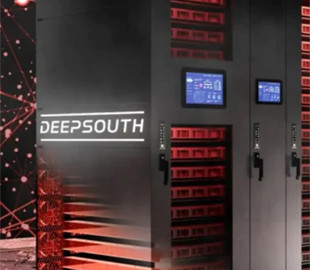
The Deep South supercomputer can perform 228 trillion operations per second. Scientists hope to use it to reveal the secrets of the brain and find cures for so far incurable diseases.
The Deep South supercomputer, located at the Australian International Center for Neuromorphic Systems, will be operational during April 2024. This device boasts a processing speed of 228 trillion operations per second, which exceeds the capabilities of the human brain by more than 2,000 times, writes Gizmochina.
Despite the ever-evolving technology, the human brain is the best in terms of computing power. The speed of data processing by the brain is more than 100 billion operations per second. To overcome this, scientists have explored neuromorphic computing inspired by the structure of the brain. Studying the brain to build smarter computers has led to a deeper understanding of the human brain itself. Researchers can now analyze brain diseases and observe how the brain responds to drugs and aging.
The high efficiency of the human brain lies in the billions of interconnected nerve cells that operate with minimal energy consumption, enabling trillions of interactions to occur. . The Deep South supercomputer, of course, needs more space and power. Little is known about the device so far, but experts assume that it imitates the brain, copying the algorithms for combining information storage and processing operations.
The supercomputer will allow scientists to study the brain in more detail by analyzing connections communication between neurons to identify the root cause of some neurological problems. He can even visualize the processes taking place in the brain by creating a computer model of it. While revealing all the secrets of how the brain works may seem far-fetched, the potential of Deep South is undeniable. Perhaps with its help, a digital copy of the brain will be created in order to understand how to treat various diseases that are currently incurable.

